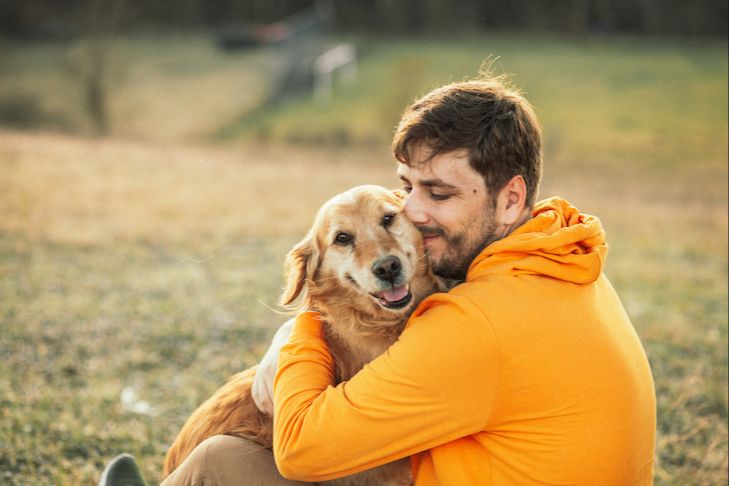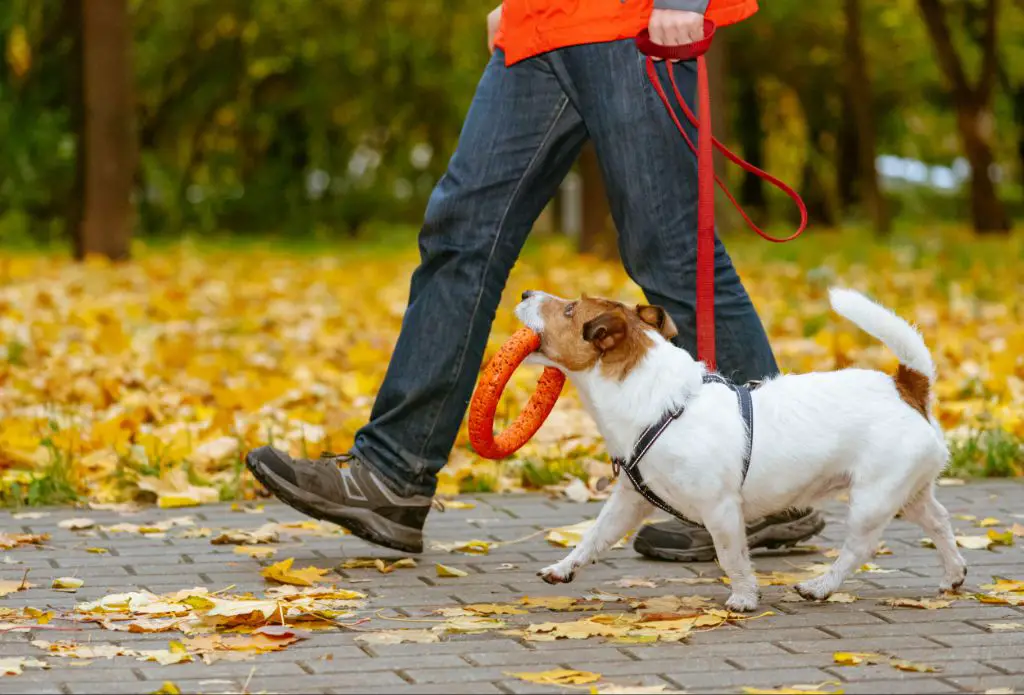Introduction
Depression is a common and serious mental health condition that negatively affects how you feel, think, and act. It causes feelings of sadness, loss of interest, feelings of worthlessness, guilt, hopelessness, and fatigue that persist for weeks, months, or even years. Depression impairs daily life and normal functioning, causing emotional pain and even leading to suicide in the worst cases.
According to the World Health Organization, more than 264 million people worldwide suffer from depression. It affects people of all ages, genders, races, and economic backgrounds. With proper treatment and support, most people can overcome depressive disorders and regain their joy and purpose in life.
Dogs Provide Companionship
One of the strongest benefits dogs provide for those with depression is companionship. Dogs are known for their loyalty and affection, offering constant friendship without judgement. Having a devoted canine companion by your side can help alleviate feelings of loneliness and isolation that often accompany depression.
Dogs provide unconditional love, always excited to see you and eager to spend time together. Their happy energy and enthusiasm can be uplifting during depressive episodes. Simply petting a dog has been shown to release oxytocin, dopamine, and serotonin in humans – all hormones that can improve your mood.
With a dog, you are never alone. Their companionship helps combat negative thoughts and makes daily life more enjoyable. Having a furry friend to care for gives purpose and meaning as well. The social support a dog provides can be a powerful antidepressant.

Dogs Encourage Exercise
One of the ways dogs can help with depression is by encouraging more physical activity for their owners. Taking dogs for walks and playing with them provides opportunities for exercise that many people may not get otherwise. Going out for regular walks with a dog promotes a consistent routine of physical activity.
The physical movement involved in walking and playing with a dog also releases endorphins in the brain that can boost mood. Exercise stimulates the production of these feel-good hormones that elevate energy levels and regulate stress. Even gentle exercise like walking can make a big difference over time for mental health.
In addition, spending time outside walking and exercising with a dog can provide a way to get outdoors and experience nature. Sunlight exposure and fresh air are also beneficial for reducing depression. The motivation of caring for a dog encourages people to move more and reap the mood-boosting rewards of physical activity.
Dogs Provide Comfort
One of the most powerful ways dogs help with depression is by providing comfort. The simple act of petting a dog can release oxytocin, lower cortisol levels, and activate the parasympathetic nervous system, all of which promote feelings of relaxation and calm. Stroking a dog’s soft fur provides sensory pleasure and comfort, similar to giving yourself a soothing hug. Even just having a dog sit beside you or lay its head in your lap can provide much-needed emotional support.
Beyond just being pet, dogs are intuitive creatures that often seem to sense when their human is sad or anxious. Dogs will frequently offer behaviors that appear intended to console and uplift their distressed human, such as gently nuzzling their hand or resting their head on their lap. Some dogs even appear to mimic human emotions at times, whimpering when their owner is crying or providing an empathetic gaze. This emotional support from a loving canine companion can make a substantial difference for those struggling with depression.
Dogs Add Structure and Routine
One of the main ways that dogs can help with depression is by adding more structure and routine to a person’s day. Simply having to care for a dog creates responsibilities and duties that need to be met. Dogs need to be fed, walked, played with, and given attention on a regular basis. This requires the owner to follow a schedule and have a sense of duty.
Most dogs need to go outside to relieve themselves multiple times per day, which means the owner needs to facilitate regular opportunities for bathroom breaks. Dogs also need daily exercise and playtime to stay physically and mentally healthy. Taking a dog for walks or playing fetch forces the owner into increased activity levels. Having a consistent schedule of feeding, walking, training, exercise, and bonding time gives much needed structure.
The routine of caring for a dog helps combat lack of motivation and feelings of hopelessness that often accompany depression. When someone is responsible for meeting the needs of their pet, they have purpose and meaningful daily goals to accomplish. The simple act of getting out of bed to feed or walk the dog provides a sense of fulfillment.

Dogs thrive on routine and schedule. By creating regular caretaking duties, dogs naturally impose a healthy amount of daily structure for both themselves and their human owners. The intrinsic responsibility of dog ownership helps counteract the lack of drive, isolation, and irregular sleep patterns connected with depression.
Dogs Promote Social Connections
Taking your dog on regular walks or to the dog park provides opportunities to interact with other people. Dog owners often stop to chat or play with other dogs, fostering a sense of community. This helps people feel less isolated and more connected.
Having a dog serves as a social lubricant, making it easier to strike up conversations. People feel more comfortable approaching someone with a dog. Dog owners have a shared interest they can bond over.
Caring for a dog encourages getting out of the house daily for exercise and socialization. This helps counteract the tendency to isolate when depressed. The social stimulation of walking and playing with a dog has mental health benefits.
Research shows dog owners have more social capital and stronger networks in their neighborhoods. Dogs promote casual social interactions that can blossom into deeper relationships and friendships over time.
Dogs Reduce Stress
Having a dog has been shown to significantly reduce stress levels. The companionship of a dog provides a powerful buffer against the effects of daily stress and anxiety. Studies have found that petting a dog can lower blood pressure and cortisol levels, releasing relaxing endorphins.
Dogs also serve as a positive distraction from worries and rumination. Focusing attention on a dog through play or cuddling shifts mental focus away from stressors. The presence of a loving dog creates a reassuring sense of security that enables people to better cope with challenges.
With their playful attitudes and unconditional affection, dogs have an amazing capacity to lighten moods and facilitate relaxation. The calming effects of a furry companion lead to more positive thinking patterns. By alleviating stress, dogs help prevent and reduce feelings of depression and anxiety.
Dogs Boost Oxytocin
Oxytocin is often referred to as the “love hormone” or “cuddle chemical” because it promotes bonding and feelings of affection and trust between individuals. When humans and dogs gaze into each other’s eyes, it triggers the release of oxytocin in both species.
Research shows that both dogs and their owners experience a surge in oxytocin levels after as little as 30 minutes of interaction. The spike is similar to the one new mothers and fathers feel when bonding with their baby.

This oxytocin release helps forge a strong connection and sense of attachment between dogs and their human companions. The more time spent together, the more oxytocin is produced, strengthening the human-canine bond.
The oxytocin produced from dog-human interactions can help relieve symptoms of depression, anxiety, and loneliness. It promotes positive feelings and a sense of calm and wellbeing for both individuals.
Dogs Provide Unconditional Love
One of the most powerful ways dogs help with depression is by providing unconditional love. Unlike human relationships which can be complicated, a dog’s affection comes without any strings attached. They offer affection and are always happy to see their owner, regardless of the person’s mood or circumstances.
Dogs don’t judge, they simply love. Their endless enthusiasm and loyalty can make a depressed person feel valued and important. Petting a dog can also release oxytocin in both the dog and human, further strengthening their bond. Knowing your dog is always there for you, happily wagging its tail and ready to provide comfort, can make a big difference during bouts of depression.

Conclusion
In summary, dogs can provide enormous benefits for individuals struggling with depression. Their companionship and unconditional love helps reduce feelings of isolation and loneliness. Taking dogs for walks encourages exercise and adds structure to daily routines, both of which can improve mood. The comfort, stress relief and oxytocin release dogs provide have therapeutic effects. Dogs give affection and comfort without judgement, helping to boost self-esteem. Their social lubricant effect promotes connections with other people. For all these reasons, dogs can be invaluable for managing depression. While not a cure, the joy, comfort and motivation dogs provide makes coping with depressive symptoms easier.